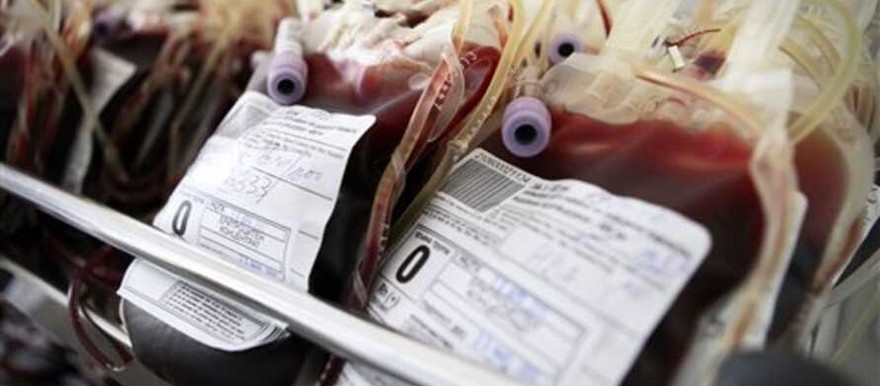'We need a blood bank' Jonglei residents demand

Residents of Jonglei State's Bor Town are calling for the urgent establishment of a blood bank at the Bor State Hospital, the main referral health facility in the state, to save the lives of patients in dire need of blood transfusion.
Since independence, Bor State Hospital has operated without a blood facility, despite serving patients who come from as far as neighboring states.
According to health professionals in the state, the lack of access to safe blood continues to be a major health concern and accounts for fatalities, especially among anemic patients. They say relatives are the main source of blood donation, but incompatibility issues and lack of donors, worsen the situation.
22-year-old Achol Alith said she was left hopeless a month ago after doctors decided she had to undergo a cesarian delivery, yet she had no one to donate for her blood.
“I was in labor pains for four days at home without delivering. Later, I was taken to Bor Hospital where the doctors after the examination said I was ready to give birth, but that my delivery would only be through an operation. At the time, there was no one to donate for me blood," she said. “But doctors decided to go on with the operation. 30 of my relatives turned out to donate blood, but none of their blood was compatible with mine. Luckily, my cousin from the village was the only one to rescue me. Thank God! I could have died if my blood was not to match the last person.”
According to reports, thousands of South Sudanese mothers die annually during childbirth, due to bleeding, among other reasons.
Dr. Bol Chaw Manyang, the medical director of Bor State Hospital, decried chronic blood shortages at the hospital.
“The lack of a blood bank has been a challenge in Bor. As doctors, we are left in a dilemma whether to do surgery or wait for blood. But what we do, we call relatives before operations because we do not know if there will be bleeding. Sometimes blood may not be compatible or donors may be sick," he noted.
The doctor revealed that they lost at least two patients over the past weeks because the hospital was unable to help them out due to the blood shortage.
“It is very unfortunate if patients are brought from places like Lakes State. They will not have relatives because they are only accompanied by a co-patient whose blood may not be compatible. Last year, we lost a patient to anemia. Early this year, we lost a patient. Those are patients who come from far places,” he noted.
Dr. Chaw, however, pointed out that deaths from chronic blood shortages will be averted if a blood bank is established in Bor.
John Madit, a resident of Bor, said his brother who bled to death from gunshot wounds would have been saved if there was a blood facility at the hospital.
“Apart from this case of my brother, one of our relatives escaped death after severe bleeding during birth because her blood matched with one of our brothers. And that guy had to come from Panyagoor town, Twic East County. We had to send him a ticket,” he stressed.
Madit earnestly pleaded with the national health ministry to establish a blood bank so that chronic blood shortages are addressed in Bor.
Bol Deng Bol, an activist in Bor, urged the government to intervene, saying the call for improved health services has been muted by other issues.
“Jonglei has got many serious issues and perceptions remain there. The issue of floods and insecurity people are killed everywhere even at their homes. These issues got people stuck, forgetting that people can be shot and rushed to the hospital, and they also need blood. This has been a silent concern even for the hospital staff because they once raised it but it was not addressed,” he stressed.
Dr. Samuel Majur, the director-general in the state health ministry, admitted that blood shortages have been a concern since 2011 and that they have been engaging relevant health agencies in the country to address the issue.
For his part, the Dean of School of Medicines & Nursing at Upper Nile University Dr. Simon Deng Nyichar blamed the chronic blood shortages in parts of the country on cultural beliefs saying people are reluctant to donate blood.
He advised the South Sudanese to regularly donate, saying it is essential even for the health of donors.
“In South Sudan, to give blood is not easy. People ask what will I get if I am to donate. People are not oriented. Giving blood after every six months is good. Because it is healthy for the donor and again you will save somebody else's life,” he said.
Several efforts by Radio Tamazuj to get a comment from the National Blood Transfusion Services were unsuccessful.